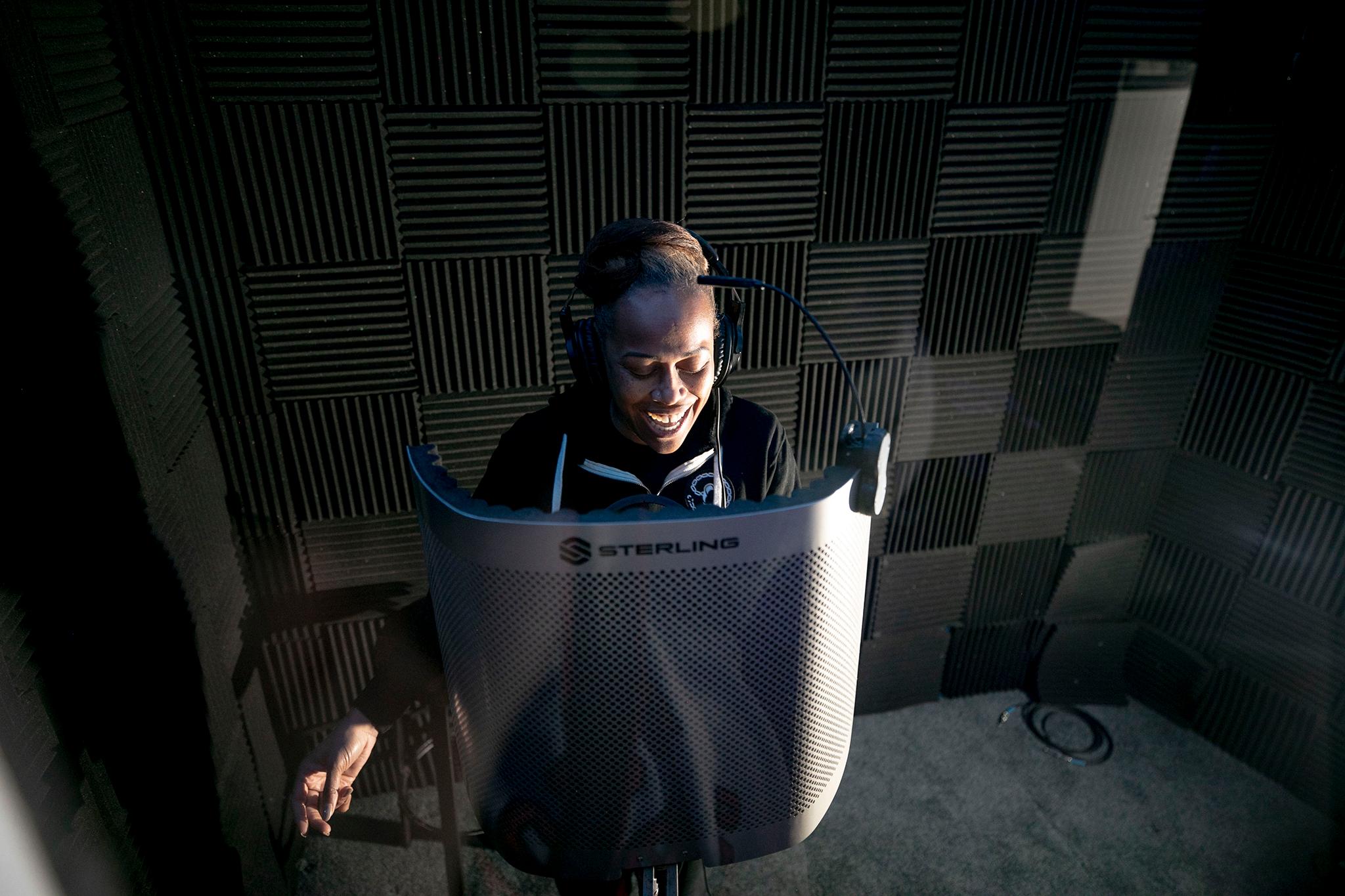A jazz waltz melts into heavy bass and a hip hop beat as the theme to "In the Pocket: The Ballad of Bobby Trombone" begins.
The play is the latest work by Jeff Campbell's Emancipation Theater, a story about Five Points' heyday slated for the Savoy theater next month. The song projects past, present and future within the same gaze, a theme that runs throughout Campbell's script.
We met up with Campbell as he and his music producers, Akil and Kaleb Kahsay, mixed genres and layered vocals from actor and singer Danette Hollowell into the score. He was careful not to give away too much of the plot, but said the story takes place in the time before Five Points' historic Rossonian Hotel closed to sit vacant for decades. The story brings the hotel back to life on stage, for now, but Campbell said he hopes to hold a performance inside the building itself someday.
"It centers around the folks that work there at the Rossonian," Campbell told us. "One of them has this pursuit to make it as a big star, that's his whole thing. And along the way, he discovers the valuable gifts that he has, that go beyond fame and fortune."
That aspirer is Simon, a bellhop who's itching to leave town to find his big break. Campbell said his role represents a look toward the future. Bobby Trombone, played by Campbell, a musician - and "the best to ever do it" - represents the past and is stuck in Five Points' golden years. Violet, their colleague, helps ground them in the present.
Hollowell, who plays Violet, said the story's struggle centers around Simon's desire to leave and the idea that you have what you need in community if you know how to see it. It also contains a premonition that the good days in Denver's "Harlem of the west" will be in peril as the city changes.
"Violet's character is trying to tell both the past and the future: If we don't do something, we're going to lose this community," she said.
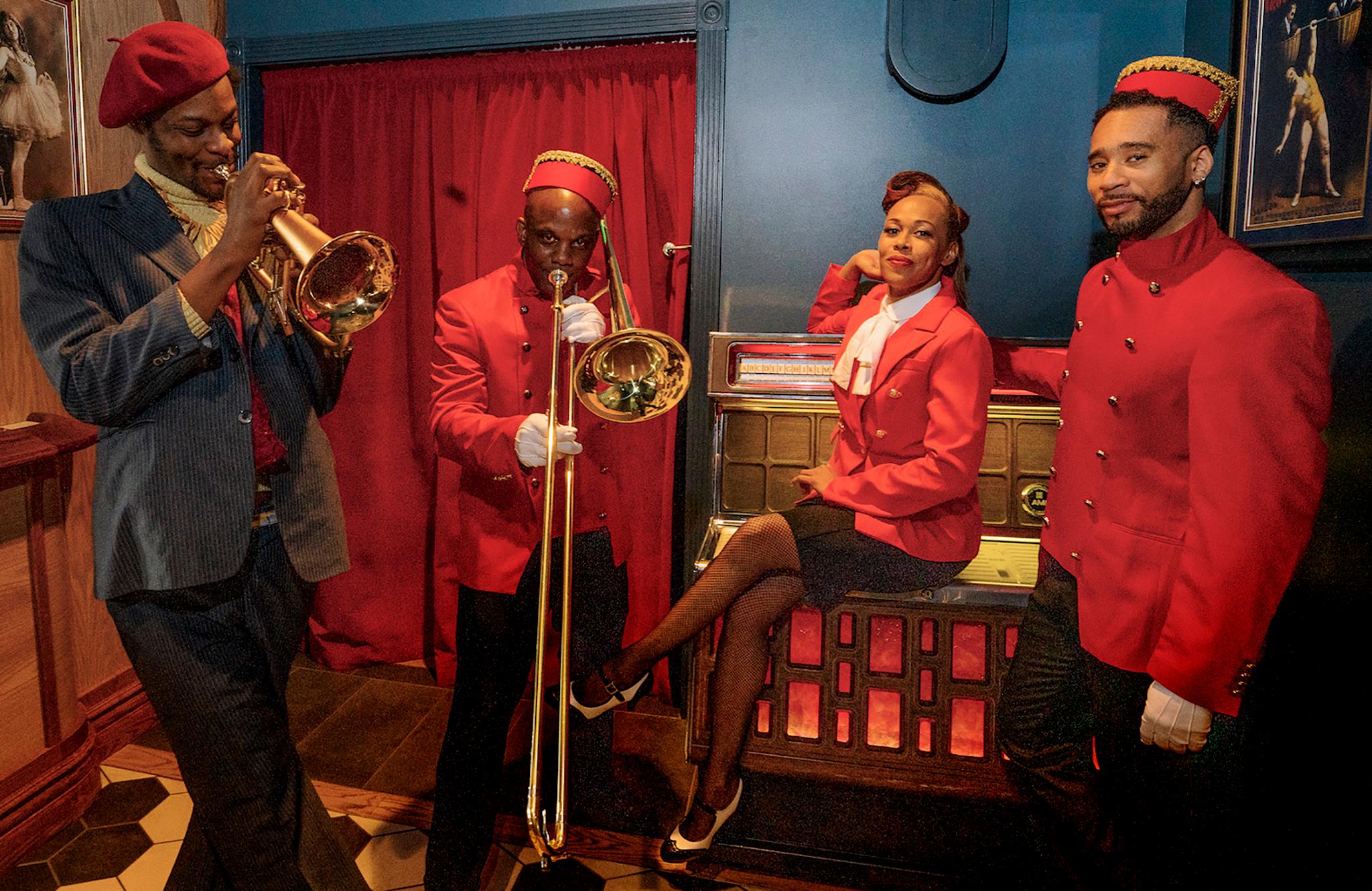
While we don't know too much more about the story, Campbell said Five Points' present is reflected throughout.
Campbell said "Bobby Trombone" is rooted in another play, "Back Room at the Rossonian," which was written by William Dewey but abandoned around 2015 after a series of setbacks, including the death of the production's star performer. Dewey handed his script to Campbell, who sat on it patiently until a City Council member came asking about some way to shine a light on Welton Street's long history as a center of jazz in the west and Black life in Denver.
"Candi CdeBaca said, 'Hey, you know what would be cool? A play about the history of jazz and Five Points,'" Campbell recalled, "So I pulled that script out and then started to work with it."
Campbell said he relied on Dewey's deep research into the neighborhood's history, then imbued it with jazz and his own sense of humor. But both stories revolved around a vision of the neighborhood's past and a recognition that things would not last.
In the real world, Denver's Black community has filtered out of once-redlined Five Points as home values in the neighborhood rose. Hollowell was among those priced out. Lately, Welton Street has lost a handful of Black-owned businesses, like Welton Street Cafe, Coffee at the Point and Melody Market (which will close at the end of January).
"It has not been fun to watch what feels like a forced change," Hollowell said, "especially around Black-owned business in a Black-owned neighborhood."
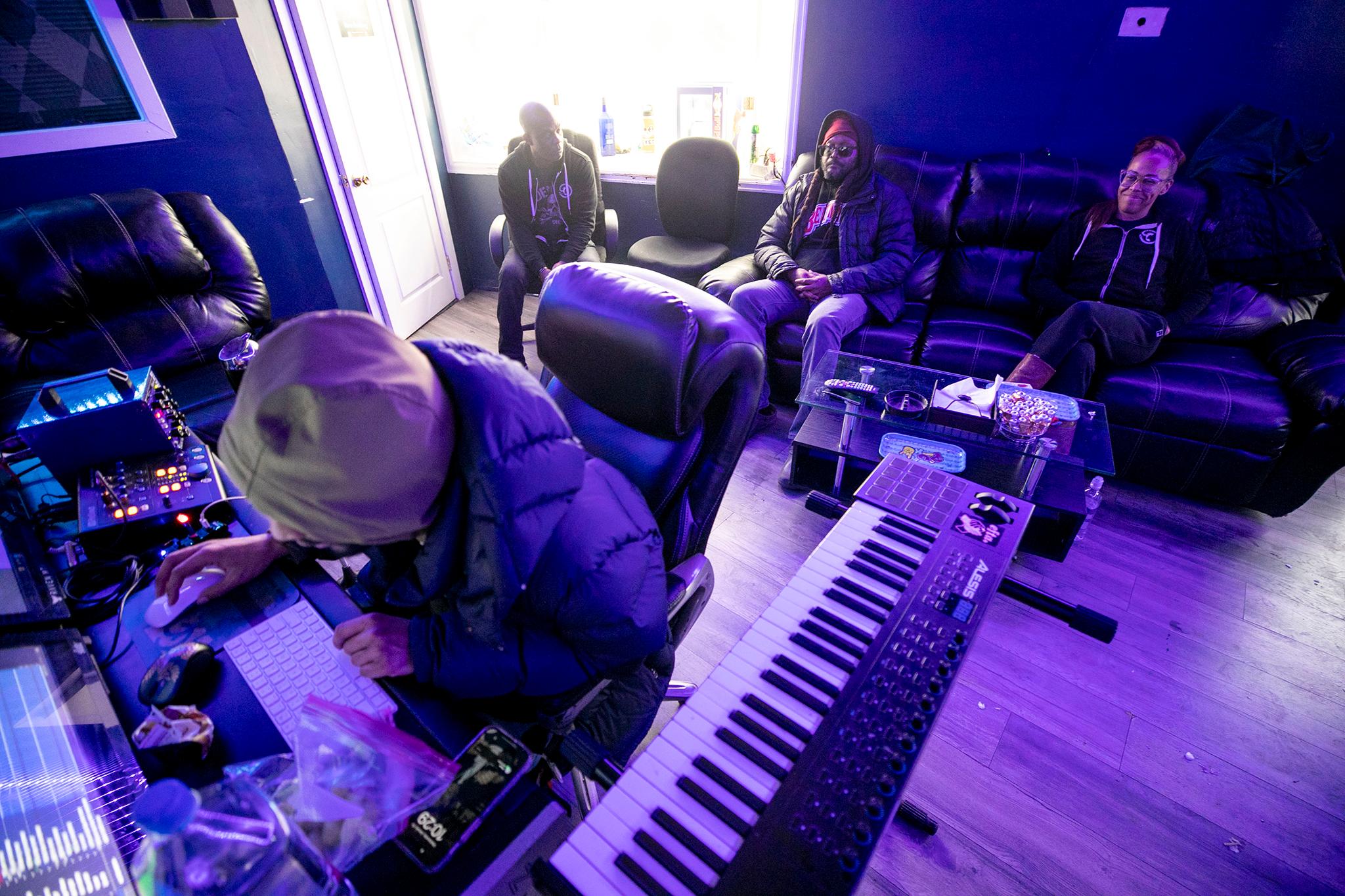
For Campbell, the Rossonian is a kind of totem of the areas' hollowing out. He recently spun up a ghost story explaining its fate in a Facebook post promoting his new show.
"Is the Rossonian Hotel still haunted by the ghost of Bobby Trombone?" he wrote. "Residents of the Five Points neighborhood in Denver often report of the sound of music coming from the building, in the early hours of the morning. Every would-be developer who has made an attempt has failed at the historic landmark's resurrection? Why?"
Campbell said Bobby is never a ghost on stage, but the building's bleak future is "inferred" throughout the story. Still, he was clear this is not a eulogy.
"You can make a story a triumph or a tragedy. And the beauty of storytelling is that you have the opportunity to celebrate, and you have the opportunity to have a happy ending," he said. "You have the opportunity to give folks hope in a world that doesn't often do that."
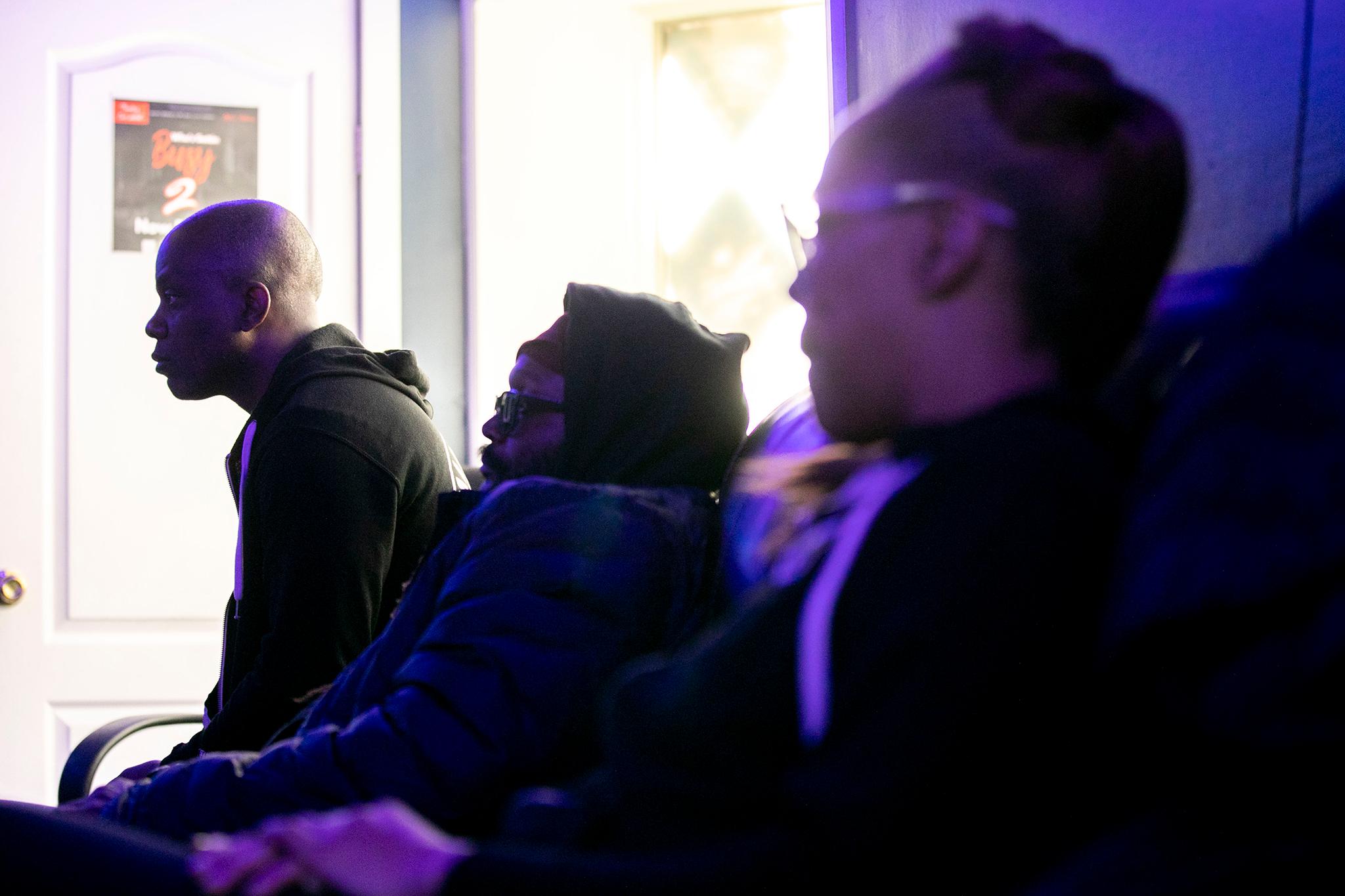
Instead, Campbell wants to inspire more conversation about the old hotel.
He hopes it will help people dream of its reopening and consider how that could help restore an important sense of past, present and future on the block.
"Can we recreate this energy again?" he mused. "Wouldn't that be a beautiful thing?"
Palisade Partners, the developers who own the Rossonian, submitted new design plans to the city a few months ago. When they first bought the property in 2018, they held a large community event to announce their intentions to re-open it in partnership with three Black businessmen with ties to the area, Norman Harris III, Haroun Cowans and Chauncey Billups. None of those three are currently affiliated with the project.
Last month, Krystal Shores, an executive assistant with Palisade, told us "ownership is still working towards the same overall vision" despite the change-up in partners, which includes "a restaurant, jazz club, and hotel all while still honoring the history of the neighborhood."
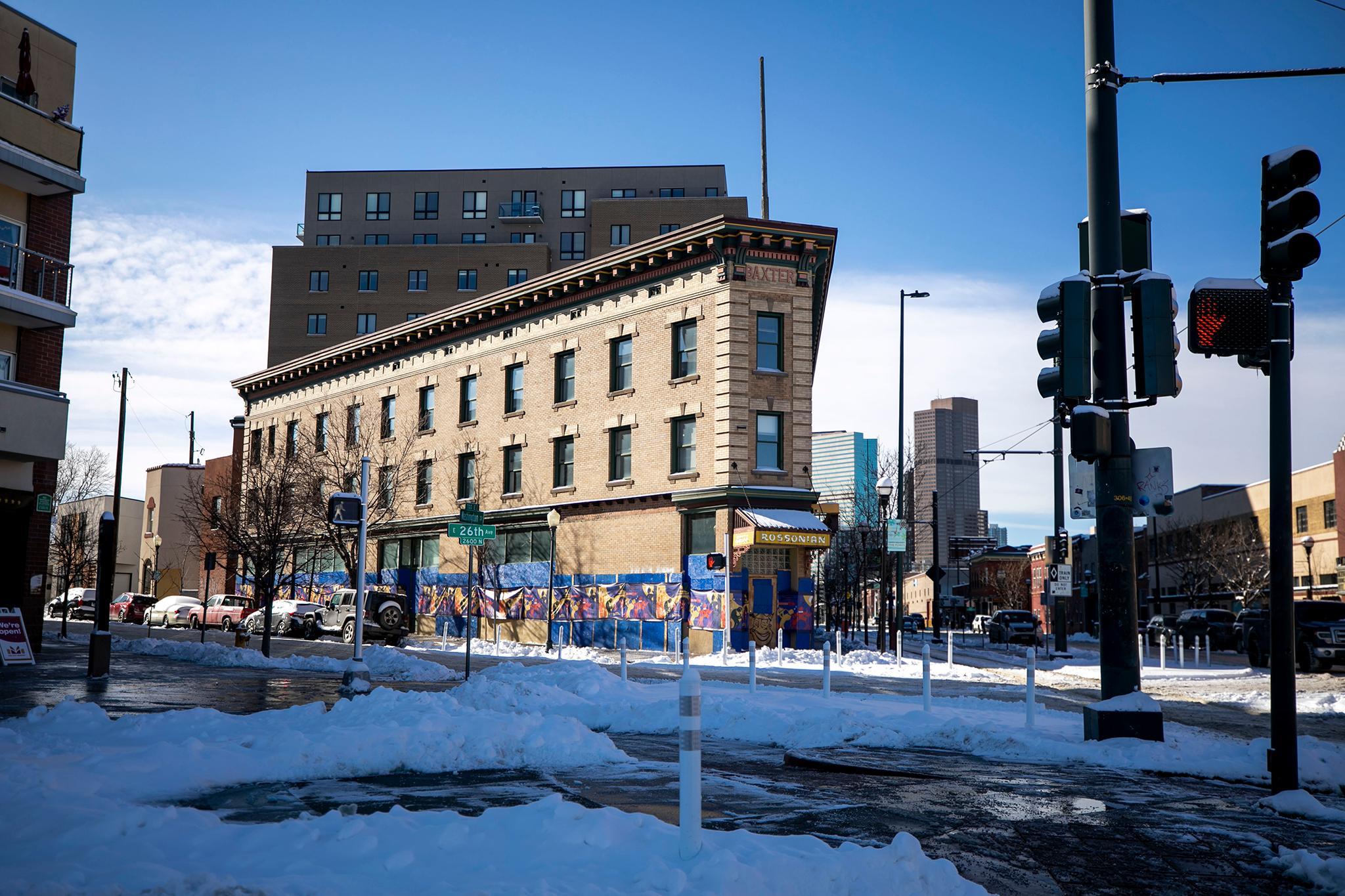
Campbell said he knows how much work and money Palisade must spend to get there. It may be a century-old building bound by historic preservation rules, but he thinks it has some bright days ahead.
"I do believe that that building will eventually be reactivated," he said, "but I hope that we have a little fun with it in the community and hope ["Bobby Trombone" will] spark some interest."
Keeping the Rossonian in peoples' minds is an important piece of that trek forward. It goes back to another theme on Campell's mind as he penned his script. As he worked, he traveled to be with his father as he died.
"That moment for me really made me want to bring out this piece about ancestral communication," he said as his score bumped in the background. "Our bodies don't live forever, but our stories do, within the memories and emotions of the people who love us. I wanted that essence to be a part of the story."

Hollowell said audiences should prepare for a fun night amid this kind of context.
"People should expect to laugh, they should expect to be on the edge of their seats, expect the unexpected and expect to see some of yourself, some of your community members, some of your neighbors," she said, "especially if you're a local."
On the soundtrack, and on stage, her voice will bring all of it into focus.
"When the sun sets on the mile high city, you can see where Black excellence found a home," Hollowell crooned in the studio. "But don't you dare forget about the best bellhop in town. And his name was - and his name was - and his name was Bobby Trombone."
"In the Pocket: The Ballad of Bobby Trombone" runs Feb. 9th through 19th and is a partnership between Emancipation Theater and Theatre Artibus, with support from a Denver Arts and Venues grant, the RiNo Arts District, Gary Community Investments, Live Laugh Real Estate and Brother Jeff's Cultural Center.

